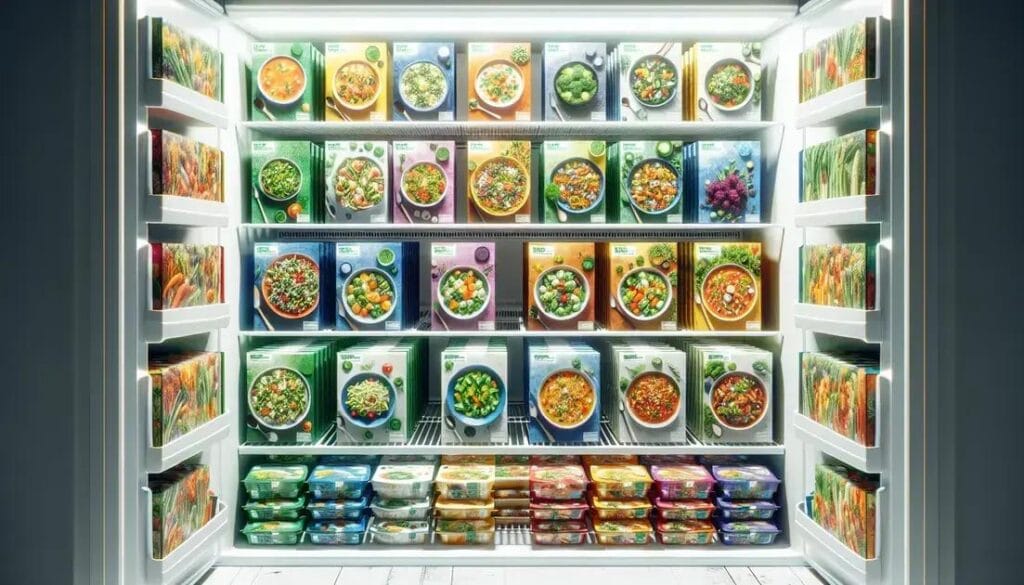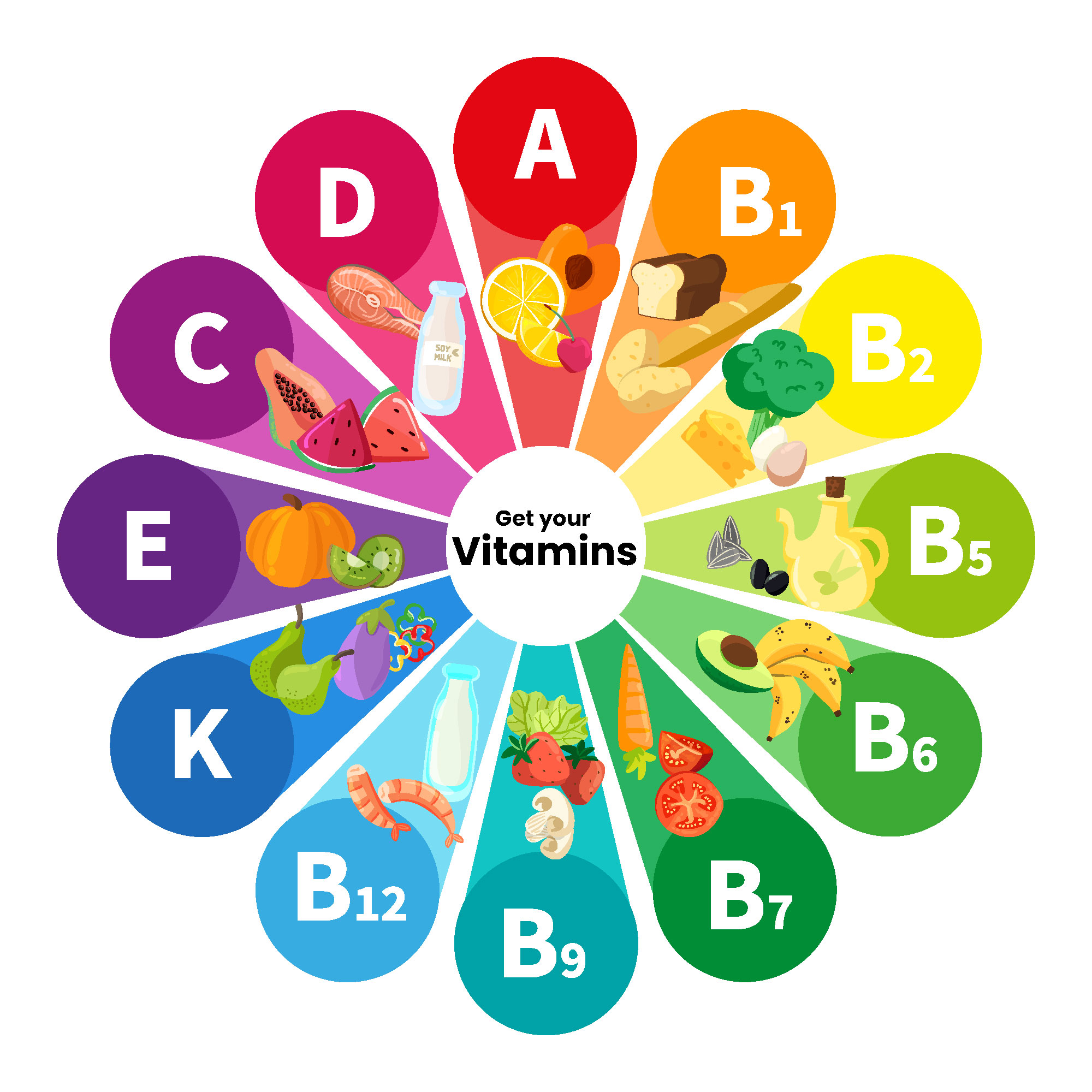Frozen food has become a staple in many households, offering convenience and a variety of meal options.
It’s perfect for busy individuals and families who want to save time while still enjoying delicious meals.
In this article, we will delve into what frozen food really is, explore the benefits of incorporating it into your diet, and provide tips for choosing healthy frozen meals that maintain both taste and nutrition.
Content
ToggleWhat is Frozen Food?
Frozen food refers to food items that have been preserved by freezing, allowing them to maintain freshness for an extended period.
The freezing process halts the growth of harmful bacteria and preserves the food’s nutritional value, flavor, and texture. Common types of frozen food include vegetables, fruits, meats, and prepared meals.
Is it True that Frozen Food Loses Nutrients?
One common myth is that frozen food loses a significant amount of nutrients. However, studies show that frozen food can be just as nutritious as fresh food.
In fact, some frozen fruits and vegetables are picked at peak ripeness and frozen immediately, preserving their nutrients effectively.
Research has suggested that freezing can retain vitamins such as Vitamin C, making them a healthy option.
Benefits of Eating Frozen Food
There are many reasons to incorporate frozen food into your diet. Firstly, it is incredibly convenient, making meal preparation quick and easy.
Secondly, frozen food often has a longer shelf life, reducing waste and saving money. Lastly, many frozen options offer balanced meals that help in maintaining a healthy diet.
Tips for Choosing Healthy Frozen Meals
When selecting frozen meals, look for options with whole ingredients and minimal added sugars or preservatives.
Always check the nutrition labels to ensure that the meals are balanced with protein, whole grains, and vegetables.
Additionally, frozen fruits make excellent snacks or additions to smoothies, providing a nutritious boost to your diet.
Benefits of Eating Frozen Food

There are numerous benefits to eating frozen food that make it a popular choice for many. Firstly, frozen food is incredibly convenient.
It saves time in meal preparation, allowing you to quickly heat and eat without having to chop, peel, or cook ingredients from scratch.
Preservation of Nutrients
Frozen food is often preserved at its peak ripeness, ensuring that nutrients are locked in.
This means that many frozen fruits and vegetables retain similar nutritional value to their fresh counterparts.
They can be just as healthy, if not healthier, making them a smart choice for a balanced diet.
Reduced Food Waste
Another significant benefit is the reduction of food waste. Since frozen items have a longer shelf life, they can be stored for months without spoiling.
This helps you use only what you need and avoid throwing away expired food.
Cost-Effectiveness
Frozen foods can also be budget-friendly. Buying frozen fruits, veggies, and meals is often less expensive compared to their fresh versions, especially when items are out of season.
This cost-effectiveness allows families to enjoy a variety of foods that may otherwise be too expensive.
Diverse Options
Finally, frozen food offers a wide range of options. From meals and snacks to fruits and vegetables, there are plenty of choices for different tastes and dietary needs.
Whether you’re looking for quick dinners or healthy snacks, the frozen section has something for everyone.
Tips for Choosing Healthy Frozen Meals
Choosing healthy frozen meals can be easy if you follow a few simple tips. Start by looking for options with whole ingredients.
This means meals that include real foods like vegetables, lean proteins, and whole grains, avoiding items with excessive processing.
Check the Nutrition Labels
Always read the nutrition labels on packages. Look for meals with fewer than 500 calories per serving. Also, try to select options that are high in fiber and low in sodium.
High fiber can keep you feeling full longer, while low sodium can help you maintain heart health.
Avoid Added Sugars and Preservatives
Be cautious of meals that contain added sugars and preservatives. Ingredients like sugar, artificial flavors, and colors can make meals less healthy.
Aim for meals that prioritize healthy ingredients over unnecessary additives.
Balance Your Meal
Look for meals that offer a well-rounded balance of nutrients. A healthy frozen meal should have a good mix of carbohydrates, protein, and fats.
Ensure that it includes a serving of vegetables, as these are essential for vitamins and minerals.
Portion Control
Pay attention to portion sizes. Sometimes, a frozen meal may seem like a single serving, but it might be larger than what you should eat at once.
Consider pairing your meal with a side of salad or fresh fruit to add volume and nutrition without extra calories.
In Conclusion: The Value of Frozen Food
Frozen food offers a convenient and nutritious option for busy lifestyles. By understanding what frozen food is and recognizing the myths around nutrient loss, you can make informed choices for your meals.
The benefits of eating frozen food include ease of preparation, long shelf life, and a variety of healthy options that fit any dietary need.
With the right tips for choosing healthy frozen meals, you can enjoy the process of selecting meals that contribute to your overall health.
Incorporating frozen foods into your regular diet can lead to improved nutrition, better meal management, and ultimately a healthier lifestyle.
Embrace the world of frozen food and discover all the possibilities it holds for your kitchen.
FAQ – Frequently Asked Questions about Frozen Food
Does frozen food lose its nutrients?
No, frozen food can retain its nutrients. Many frozen fruits and vegetables are frozen at their peak ripeness, preserving their nutritional value.
What are the benefits of eating frozen meals?
Frozen meals offer convenience, extended shelf life, and often provide a variety of healthy options that can save time and reduce food waste.
How can I choose healthy frozen meals?
Look for meals with whole ingredients, check nutrition labels for low calories and sodium, avoid added sugars, and aim for balanced nutrients.
Are frozen fruits and vegetables as healthy as fresh ones?
Yes, frozen fruits and vegetables can be just as nutritious as fresh, especially when they are frozen shortly after harvest.
Can frozen meals help with portion control?
Yes, frozen meals often come in pre-portioned sizes, helping you manage your servings and avoid overeating.
Is frozen food cost-effective?
Yes, frozen food can be a budget-friendly option, as it often costs less than fresh items, especially when they are out of season.



